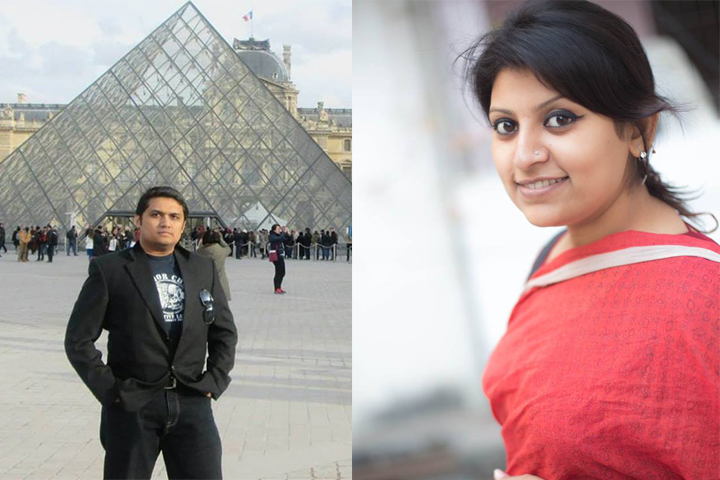Women entrepreneurs in Bangladesh

With the social mission the Social Enterprises are expanding its operations across the world. To build a strong tie in the society the Social Enterprises can contribute a lot. The success of Social Enterprises is expecting to the mass people especially in Bangladesh. In this regard Human Resource Division can help to get their success. The recent growth of social enterprise has been observed in the developed industrialized countries like Bangladesh. Currently Social Enterprises are working in multifarious sectors like as health, social care, housing, children’s services, vehicles, food and farming, sustainable environment, human rights and leisure. The Social Enterprises need a strong human resource division to manage all these areas. As a result the human recourse division is facing a big challenge. Traditionally the HRD doesn’t consider significantly about hiring staffs. Things have changed now, the HRD of Social Enterprises have to keep consideration on hiring and retaining a significant percentages of staff, which leads Social Enterprises HRD to stiff position. Social Enterprise always focused on the culture-fair recruitment and selection process. The Social Enterprise’s HRD has to focus on energizing working relationship and introducing progressive development policies.
The study found that 77% of the social enterprises in Bangladesh are established between 2009 and 2015. Most of these enterprises are led by early life who are under 35, which indicates that the youth are taking the mantle of leadership to make a positive change in the society. Bangladeshi social enterprises are generating an average annual turnover of Tk2.1 million and nearly three-quarters of the social enterprises expect a substantial increase in turnover in the next fiscal year
For example of Social Enterprise we can take example of BRAC HRD. To help the employees to be authentic leaders BRAC HRD is trying to develop employees’ psychology through different trainings where employees can develop their self-awareness and leadership capability. To increase the productivity of the employees BRAC Human Resources Division introduces employees’ code of conduct (hrd.brac.net) which will dictate employees’ attitudes and behaviors.
Studies on women entrepreneurship have witnessed a rapid growth over the past 30 years. Today, according to The Independent, “Women are almost twice as likely to reach the top ranks in social enterprises as they are in mainstream businesses,” and “more than 90 percent of companies that focus on tackling social problems have at least one woman on their leadership team.” To put it even more bluntly, as former Chilean President Michelle Bachelet said in her address at the 2012 Social Enterprise World Forum in Rio de Janeiro, it seems that “women are natural social entrepreneurs.” The 23rd edition of Dhaka International Trade Fair (DITF) has seen the participation by a good number of women. In Bangladesh, women constitute above 10 percent of the total number of entrepreneurs in the country. Official data revealed the participation of women entrepreneurs at the SME fair was 56% in 2013, 74% in 2014, 66% in 2016, and 61.5% in 2017.
The question is, why are we finding so many women in this field -- and are they really capable of leading the charge?
An alignment between women in leadership and women as consumers has been underway for some time. Women are no longer a niche market, and that change is reflected in evolving occupational roles as well. Meanwhile, women’s evolution as players in social entrepreneurship can be traced to the not-so-distant past. Women always worked in social occupations (teachers, nurses, mothers), but the more ambitious women of the Mad Men-era emerged as leaders in community societies and volunteer organizations. So while philanthropy has always been the domain of wealthy men, the new field of social entrepreneurship is ideally suited to women, who have always had to meet complex demands that pit community against individualism. In short, we understand the necessity of seeing the economy and the world as an interconnected and interdependent system.
Executives are clearing the path for a new generation of social entrepreneurs who have chosen to forgo traditional corporate paths. Women are now starting social enterprises in ever-increasing numbers. There are some ethical fashion brand and marketplace like Hur Nusrat designed to sell products made by women from our country. The platform is completely flat, which means that products from unknown designers in Hur Nusrat sell next to celebrity-designed products made by Aarong, Bishwa Rong or among others. It's a business, just like any other business. We can only benefit the community we serve if we profit because only profitable businesses can have a sustainable, far-reaching impact on communities and economies.
Rather than tell women we need to be more like men to succeed in this new realm, we should encourage women to look to the skills they do have to succeed in social enterprise. It is more important than ever that we not see compassion, long-term thinking, and social orientation as weaknesses. In the emerging realm of the social enterprise, these skills are what will help our ventures succeed, grow and change the world as we know it. That's a bet on our future that I would like to take.
It is ambitious, but the well-being of our communities (and the lives of men and women as workers, investors, consumers and citizens) are at stake. Those who understand that we are all in this together will benefit themselves while benefiting others. Entrepreneurship among women, no doubt improves the prosperity of the nation in general and of the family in particular. Women today are more willing to take up activities that were formerly considered the preserve of men, and have proved that they are second to no one with respect to contribution to the growth of the economy.
Writer Information:
1.Abdullah Hil Muntakim, Assistant Professor, FBA, UODA, Email- faculty.ahmuntakim@gmail.com
2. Fatima Islam, Project Manager, CTEIP,PMSC, LGED HQ, Email: priyankaislam86@gmail.com
AH
Comments

 Live Tv
Live Tv




